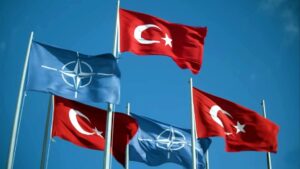
Turkey, as the NATO summit in Vilnius showed, will continue to be a strong partner of the alliance in addressing common security challenges, including the geographical expansion of the bloc, said Fahrettin Altun, head of the Turkish presidential administration’s communications department.
“Turkey is actively engaged in confronting emerging challenges by supporting NATO’s strategic orientation. In the future, Turkey will continue to be a staunch ally and a crucial partner in the alliance’s new initiatives,” he wrote in an article for Middle East Eye magazine.
He added: “Turkey believes that the expansion of the alliance is the key to lasting peace and stability in the world.”
The official clarified, however, that Turkey supports NATO’s geographical expansion “not against a specific country, but to turn the alliance into a comprehensive security organization that will help achieve stability.”
Alutn said that Turkey, which controls the geographic land bridge between East and West and the waterways to the Black Sea, “it is crucial to be in the Western camp.”
“Turkey’s long and deep commitment to NATO has protected Europe. Its continued engagement is vital to the security of the continent,” he wrote.
The official assured that “Ankara will continue to be NATO’s partner in addressing the alliance’s common challenges,” adding that this will be done “in accordance with its national security requirements.”
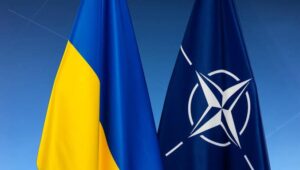
North Atlantic Treaty Organization allies are not inviting Ukraine to membership talks, but have promised to do so when they agree to it and allow conditions.
This is the content of the final communiqué of the meeting of the North Atlantic Treaty Organization heads of state and government to be approved, several informed sources told the Interfax-Ukraine news agency.
They claim that the wording will sound as follows: “We will issue an invitation when the allies agree and conditions are met.”
The sources also say that the allies have agreed to exclude the Membership Action Plan from the conditions for Ukraine. This wording can be written as follows: “Ukraine’s path to full Euro-Atlantic integration has gone beyond the need for a Membership Action Plan.”
At the same time, the sources do not rule out that the text could be changed.
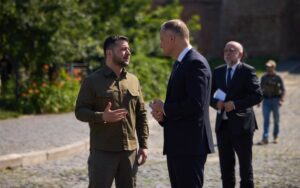
President of Ukraine Volodymyr Zelenskyy and President of Poland Andrzej Duda have agreed to coordinate their actions ahead of the upcoming NATO summit in Vilnius.
“At the events in Lutsk, Andrzej Duda and I had a brief but very substantive discussion about the upcoming NATO summit in Vilnius. We agreed to work together to get the best result for Ukraine,” Zelenskyy wrote on Twitter.
For his part, the Polish president also posted on Twitter: “Today in Lutsk, Ukraine, we met with Ukrainian President Volodymyr Zelenskyy to reaffirm friendship in the face of a difficult history and to hold final consultations before the NATO summit in Vilnius, which begins in two days.”
As Duda emphasized, “effective support for Ukraine in its aspirations for membership in the Alliance is very important for Poland.”
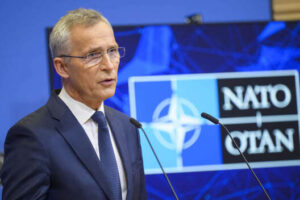
NATO Secretary General Jens Stoltenberg confirmed on Tuesday that the alliance countries have decided to extend his term for another year, until October 2024.
“I am honored that NATO allies have decided to extend my term as secretary general until Oct. 1, 2024,” Stoltenberg tweeted.
The Associated Press reported last week that NATO nations had given a tentative agreement to extend Stoltenberg’s term for another year.
Earlier it became known that none of Stoltenberg’s possible successors as head of the alliance, such as Danish Prime Minister Mette Frederiksen, British Defense Minister Ben Wallace and Spanish Prime Minister Pedro Sanchez, had gained overwhelming support among the North Atlantic Alliance’s 31 member states. At the same time, Stoltenberg assured in June that he was not seeking an extension of his term in office.
Stoltenberg has been secretary general of the alliance since 2014. His term has already been extended twice. Again it expired in 2022, but because of the Ukrainian crisis he kept the post until the end of September 2023.
There is no official election of the NATO Secretary General; the Alliance appoints him based on the consensus of all member countries of the alliance.
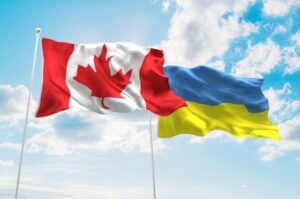
Canada will actively support Ukraine’s cooperation with NATO to join the Alliance as soon as additional circumstances allow, Canadian Prime Minister Justin Trudeau said.
“Ukraine must have a choice about how to defend itself and protect its people. And that’s why Canada will support Ukraine’s cooperation with NATO in every way possible as part of the work of the North Atlantic Alliance to support Ukraine’s accession as soon as additional circumstances permit,” Trudeau said in his remarks during a plenary session of the Verkhovna Rada of Ukraine on Saturday.
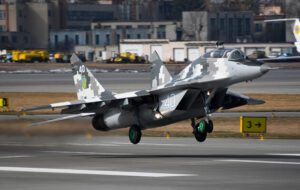
We coordinate all measures related to the strengthening of the Ukrainian Defense Forces with our NATO partners, Prime Minister Mateusz Morawiecki said on Monday.
According to the Polish state news agency PAP, the prime minister and the head of the Defense Ministry were asked at a press conference whether, following the example of the Polish government’s pressure on the international arena to hand over tanks to Ukraine, similar actions would be taken regarding F-16 aircraft and long-range weapons.
“All actions aimed at strengthening the Defense Forces of Ukraine, we agree with our partners in NATO, including the transfer of Patriot to Ukraine, as well as the organization of a strong tank force in the form of Leopard and modern tanks. All this was pressure from our side, but also agreements with the United States,” Moravetsky replied.
The Prime Minister noted that, as a few months ago, in the context of MiGs, any other Air Force will be implemented and possibly redeployed in coordination with NATO countries.
“We will act in full coordination,” he stressed.